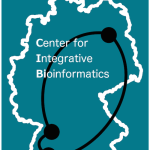Das Bundeministerium für Bildung und Forschung (BMBF) fördert ab März für fünf Jahre das Deutsche Netzwerk für Bioinformatik Infrastruktur (de.NBI). Eines der acht Leistungszentren in diesem Netzwerk – das Zentrum für Integrative Bioinformatik (CIBi) – wird dabei für die nächsten fünf Jahre mit zwei Millionen Euro gefördert. CIBi ist ein gemeinsames Zentrum der Universitäten Tübingen und Konstanz sowie der Freien Universität Berlin.
In der biomedizinischen Forschung hat die Einführung von neuen Sequenziermethoden und der hochauflösenden Massenspektrometrie einen Paradigmenwechsel ermöglicht. Die darauf basierenden Hochdurchsatzmethoden wie Genomik, Transkriptomik, Proteomik und Metabolomik – auch Omics-Methoden genannt – geben zwar sehr umfängliche und tiefe Einsichten in zelluläre Systeme, aber die erzeugten Daten sind äußerst umfangreich (im Bereich von Terabytes) und sehr komplex. Zunehmend werden heute auch Daten aus mehreren Technologien parallel erzeugt, zum Beispiel Daten zum Genom und zu den Proteinkonzentrationen in einer Zelle. Für Analyse und Interpretation solcher Datensätze sind daher innovative Algorithmen notwendig. Da ein einzelner Algorithmus für die Analyse dieser Daten nicht mehr ausreicht, werden diese Werkzeuge dann in komplexe Datenanalyse-Workflows eingebunden. Damit wird dann die automatisierte Auswertung selbst komplexester Daten möglich. Das BMBF fördert im Rahmen des Netzwerks die Weiterentwicklung von Algorithmen für die Analyse von Proteom- und Metabolomdaten entwickelt (Tübingen, Softwarepaket OpenMS, Prof. Oliver Kohlbacher), von Genom- und Transkriptomdaten (Berlin, Softwarepaket SeqAn, Prof. Knut Reinert) und der Integration dieser Tools in Workflows (Konstanz, Softwarepaket KNIME, Prof. Michael Berthold)
Das Zentrum für Integrative Bioinformatik ist eng an die anderen sieben Leistungszentren im Deutschen Netzwerk für Bioinformatik angebunden. Das Gesamtnetzwerk wird für fünf Jahre gefördert und nach drei Jahren zwischenevaluiert. Die Koordination des Netzwerks liegt bei der Universität Bielefeld

